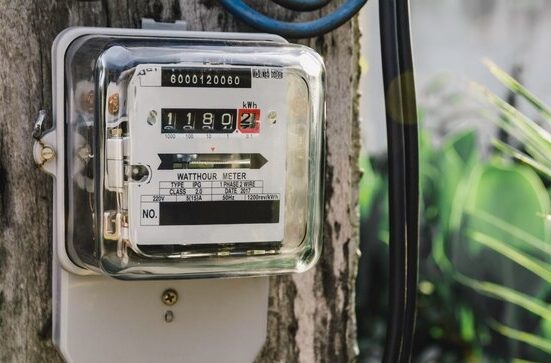Namibia, located in the southwestern region of Africa, is rapidly emerging as a top destination for business investment. With its stable political environment, robust infrastructure, and rich natural resources, Namibia offers countless opportunities for investors looking to establish a business in Africa. In this article, we will explore five compelling reasons why Namibia is the ideal place for business investment, highlighting its strengths and the factors that make it an attractive option for both local and international investors.
1. Stable Political and Economic Environment
One of the key factors that make Namibia an attractive investment destination is its political stability. Since gaining independence in 1990, Namibia has maintained a peaceful political climate, with regular elections, a strong legal system, and democratic governance. The country’s stable political environment ensures that businesses can operate without the fear of sudden political upheaval, which is a concern in many African countries.
In addition to political stability, Namibia has a relatively stable economy. The country has experienced steady economic growth over the past few decades, driven by key sectors such as mining, agriculture, and tourism. Namibia’s strong economic policies, transparency in governance, and adherence to international business standards make it a favorable environment for both local and foreign investors.
The Namibian government has implemented policies that encourage private sector growth, such as tax incentives, customs duty exemptions, and access to international markets through trade agreements. These factors collectively make Namibia an ideal location for establishing a business.
2. Rich Natural Resources
Namibia is endowed with abundant natural resources, which have made the country a major player in the global market. The mining sector, in particular, is a significant driver of Namibia’s economy, with the country being one of the top producers of diamonds, uranium, copper, and gold. Namibia is also known for its vast mineral reserves, including significant deposits of rare earth minerals, which are essential for the growing technology and renewable energy sectors.
Investors looking to tap into the global demand for resources will find Namibia to be a prime location. The country’s well-established mining industry, coupled with a favorable investment climate, makes it a top destination for resource-based investments. Moreover, Namibia’s abundant agricultural land and favorable climate make it ideal for farming and agribusiness, which are other key sectors with potential for growth.
3. Strategic Location and Access to Regional Markets
Namibia’s strategic location on the southwestern coast of Africa offers investors access to both local and international markets. The country shares borders with Angola, Zambia, Zimbabwe, Botswana, and South Africa, providing a gateway to the Southern African Development Community (SADC) region. This proximity to key markets allows businesses operating in Namibia to easily access regional trade routes and transport hubs.
Namibia’s well-developed port infrastructure, particularly the Port of Walvis Bay, is one of the most important trade routes in southern Africa. The port serves as a crucial shipping hub for goods moving to and from landlocked countries in the region, including Zimbabwe, Zambia, and Botswana. Walvis Bay’s strategic location, coupled with its deep-water capabilities, enables Namibia to serve as an efficient gateway for trade with international markets.
Additionally, Namibia is part of several regional trade agreements, such as the Southern African Customs Union (SACU) and the African Continental Free Trade Area (AfCFTA), which offer preferential access to markets across the African continent and beyond.
4. Investment-Friendly Policies and Incentives
Namibia is known for its investment-friendly policies that make it easier for businesses to set up and operate. The Namibian government actively promotes foreign direct investment (FDI) through various initiatives, including tax incentives, financial grants, and investment facilitation services. The country has established Free Trade Zones (FTZs) and Special Economic Zones (SEZs) that provide companies with preferential tax rates, customs duty exemptions, and other benefits to attract foreign investment.
One of the standout features of Namibia’s investment policy is its focus on ease of doing business. Namibia consistently ranks well in global indices that assess the business climate, such as the World Bank’s Ease of Doing Business Index. The country has simplified its company registration process, reduced bureaucratic hurdles, and streamlined licensing procedures to encourage entrepreneurship and investment. Namibia also offers a legal framework that protects investors’ rights, including strong property rights and intellectual property laws.
5. Skilled Workforce and Strong Infrastructure
Namibia is home to a skilled workforce with a high literacy rate and a growing pool of professionals in various fields, including engineering, finance, technology, and agriculture. The country has a well-established educational system, with universities and technical institutions producing graduates who are equipped with the necessary skills to thrive in the business world.
Furthermore, Namibia has made significant investments in infrastructure, including modern transportation networks, reliable telecommunications, and a growing energy sector. The country’s road and rail networks are well-developed, making it easier to transport goods across the region. Namibia also boasts a reliable power supply, with ongoing projects aimed at diversifying energy sources through renewable energy initiatives such as wind and solar power.
Namibia’s strong infrastructure not only supports business operations but also enhances its attractiveness as a regional hub for trade and logistics.
Namibia offers a unique combination of factors that make it an ideal destination for business investment. Its stable political and economic environment, rich natural resources, strategic location, investment-friendly policies, and skilled workforce all contribute to its appeal as a business hub in southern Africa. Whether you are an investor looking to enter the mining, agriculture, or technology sectors, Namibia presents a wealth of opportunities for growth and success.
The country’s commitment to promoting foreign investment and its ongoing efforts to improve infrastructure and business conditions create a positive outlook for businesses operating in Namibia. With its strong economic fundamentals and potential for further growth, Namibia is well-positioned to remain one of the most attractive destinations for business investment in Africa.
By choosing Namibia as your investment destination, you are not just entering a thriving economy but also becoming part of a country that values sustainable growth, innovation, and long-term success.













